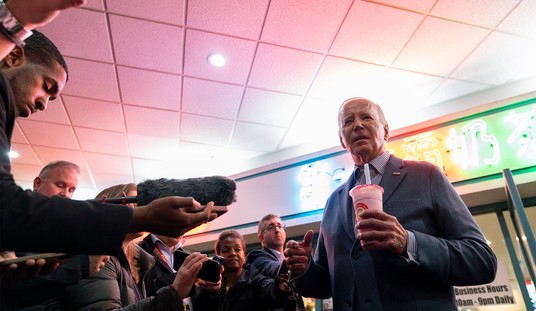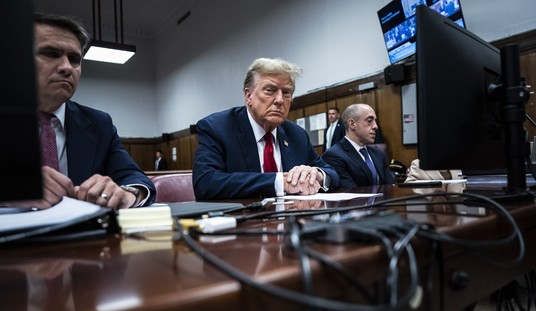Tommy Schrader is the reason Indiana Democrats passed a non-binding resolution in June calling for a law mandating congressional candidates gather at least 200 voter signatures before earning a place on the election ballot.
Although every other federal and state office requires hundreds of signatures to appear on a ballot in Indiana, not a single Hoosier signature is needed to run for Congress.
So, Schrader only had to file a declaration of his candidacy with the Indiana Election Division in person or by mail 88 days before the primary election. Schrader accomplished that relatively small task as he has four times before.
But this time, Tommy Schrader won.
He didn’t raise a dime for his 3rd Congressional District Democratic Party primary campaign. Schrader didn’t need money. He never set foot outside the Fort Wayne motel that he calls home for a single campaign event, or even to set up a single campaign sign.
Still, the 53-year-old, who says a disability keeps him from working — and/or campaigning — defeated two other Democrats, including party favorite Todd Nightenhelser, to win the party’s nomination.
From the other side of the aisle, Steve Shine, the chairman of the Allen County, Ind., GOP, told the Fort Wayne Journal-Gazette the explanation for Schrader’s win is elementary.
“We now know the number of uninformed Democrats who voted in the 3rd District in May of 2016, and that is the exact same number who voted for Tommy Schrader,” said Shine, afterward admitting he made the statement with tongue firmly planted in cheek. “There was no way you could have been informed about the candidate if you voted for him.”
Tyler Cooley, the 3rd District’s Democratic Central Committee treasurer, offered the ballot access resolution to make sure there are no more Tommy Schraders that muck up a party’s congressional primary.
“I think that the signature requirements create a system where congressional candidates demonstrate that they are willing to put forward the work necessary to run a viable campaign,” said Cooley.
“I believe it will discourage perennial candidates who do not intend to run a competitive campaign and only serve as spoilers for candidates who have invested time and money into the process,” Cooley added.
The resolution won unanimous committee approval and then was adopted at the Indiana Democratic Party’s state convention in June.
Of course, a Tommy Schrader could pop up in an Indiana GOP congressional primary. Republican Rep. Phil GiaQuinta said he thinks the signature requirement should be 500.
But fellow GOP Rep. Milo Smith believes that would place too much of a burden on congressional politicians who have to run for election every two years.
Smith expects to see the Democrats’ resolution debated in the 2016 legislative session.
Meanwhile in Pennsylvania, third-party candidates are celebrating a court ruling that should give them easier access to election ballots.
U.S. District Judge Lawrence Stengel settled a 4-year-old lawsuit on June 30 by drastically lowering the signature requirements for minor-party candidates.
He blocked a Pennsylvania law that required candidates other than those running as a Democrat or Republican to collect more than 21,000 signatures this year to get on the fall ballot.
That was based Pennsylvania’s “2-percent rule.” It puts the signature requirement for anyone outside the two-party mainstream at 2 percent of the highest vote total in the previous year’s election.
For the 2016 election, that meant candidates from the Green Party, for instance, needed to collect signatures equal to 2 percent of 1,088,716.
Republicans and Democrats only need 2,000 to get on the ballot.
Stengel didn’t completely level the playing field with his judicial bulldozer, but the rules are a little more even.
Now minor-party candidates only need at least 5,000 signatures by the Aug. 1 deadline to get on a Pennsylvania ballot and run for president or U.S. Senate the following November.
“Compared to what the 2 percent rule did in the past, 5,000 signatures is a walk in the park,” Larry Otter, a Bucks County lawyer who handles ballot-access cases, told the Morning Call.
In Michigan, the squabble over ballot access does not concern candidates. The main players in this courtroom drama are activists trying to place propositions before voters in November fighting the bureaucratic judgment their petition signatures were “stale.”
Lawyers working for the MI Legalize proposal, an initiative to ask voters if marijuana should be legalized and taxed like alcohol, have filed suit against the state because of a ruling that would keep their proposal off the ballot.
Michigan elections officials angered MI Legalize proponents by disallowing more than 137,000 petition signatures that were collected more than 180 days before they were submitted.
“Establishing reasonable time limits on when signatures can be collected helps ensure the issues that make the ballot are the ones that matter most to Michiganders,” said Mich. Gov. Rick Snyder (R).
Michigan’s 180-day rule for petition signatures was supported by a 1986 state Supreme Court ruling.
However, the leaders of several petition groups, like MI Legalize, argue it shuts them out of the political process.
“We have a litany of state and constitutional claims,” Lansing attorney Jeffrey Hank, who chaired the MI Legalize group, told the Detroit Free Press. “This isn’t just about marijuana. We’re trying to preserve the right of grassroots groups to get a question on the ballot.”
So, the stroke of a pen, or hundreds of thousands of pens, are the key to ballot access in this democracy we call the United States of America.
However, as a group in Arizona has discovered, it takes lots of people to hold the petitions as they are decorated by those pen strokes.
And there is one pen stroke that is even mightier than the ink that goes onto a petition. It is the pen stroke that inks the deal with a company that provides people to hit the streets and gather those signatures.
That’s why an organization of grass-roots activists trying to make Arizona’s Clean Elections system work even better had to surrender July 7.
Julie Erfle, the spokeswoman for Arizonans for Clean and Accountable Elections, said her group was outfoxed by a group opposed to her organization’s ballot initiative in the race to sign a deal with a signature-gathering company.
“There’s not a huge pool of paid gatherers to pull from,” she told the Arizona Daily Star. “What it meant was we needed to look out of state to bring in a paid signature firm. We did, but it definitely delayed things significantly.”
The Arizona Chamber of Commerce and Industry led the group that sealed the signature-gathering deal before the Arizonans for Clean and Accountable Elections.
While chamber spokesman Garrick Taylor would not confirm the group locked in the signature firm as a tactic to defeat Clean and Accountable Elections, he wouldn’t deny it, either.
But Taylor made clear that signature gathering is any facet of the political spectrum controlled by big money.
“When you hire these firms, it’s not a handshake deal,” he said. “These are financial transactions. You have to attract backers, funders, to do this work.”








Join the conversation as a VIP Member